For six seasons on Schitt's Creek, matriarch Moira Rose has delivered razor-edged one-liners dripping with SAT vocabulary words while sporting couture and any number of the "gals" from her infamous wig wall.
Just when it seemed as though Moira, embodied by comedy legend Catherine O'Hara, had reached the pinnacle of camp sensibility, in the series finale earlier this week, Moira officiated her son David's wedding to his fiance, Patrick, clad in an ecclesiastical number worthy of a Federico Fellini film. The pope garb paired with her denial of her tears of joy as mascara ran down her face sent the moment deliciously over the top of all of her lovable histrionics that had preceded it.
In line with camp sensibility as elucidated by Susan Sontag in "Notes on 'Camp,'" for all of Moira's "love of the unnatural: of artifice and exaggeration," she's wholly sincere in her devotion to her family and friends, even if she has struggled with accepting hugs from the members of the Jazzagals or her own children. Schitt's Creek, despite all of its hilarity and loving Rose family sniping at one another, is always sincere in shining a light on kindness. And the wisdom the Rose family has culled and put into practice since the series began in 2015 is more timely and important than ever.
Catherine O'Hara as Moira Rose
"The Rose family, it took six seasons, but I think they're a good lesson in letting love lead you and be open to each other," O'Hara tells The Advocate about what Moira, patriarch Johnny (Eugene Levy), and grown kids David (Dan Levy) and Alexis (Annie Murphy) gleaned after losing their fortune and being forced to live in a roadside motel in the tiny town of Schitt's Creek that Johnny once purchased as a joke gift for his son's birthday.
"The show right now happens to be a good marker for how well it could go if you're loving and compassionate and kind to each other. I'm sure people wouldn't say Moira's the kindest person in the world, but Moira believes she's a people person. OK?" O'Hara says knowingly of her character.
When Dan Levy conceived of Schitt's Creek, he created a place free of bigotry and homophobia. The town and its quirky inhabitants set the perfect stage for the Rose family to coalesce after being bilked of their worldly possessions, save for their wardrobe and the small town Johnny once purchased for his son as a joke.
"I think you just saw Moira in quarantine," O'Hara says. "That's what that was, living with her family under one roof, her daily routine, whatever that was, was gone. The life she knew was gone."
"The whole story is oddly appropriate at this time when families, if they're fortunate enough to have homes and be together, are learning to be together under one roof again, grown children and parents," she says of life under stay-at-home orders.
During her confabulation with The Advocate, as Moira might say, O'Hara shouts out to her son who's gardening in her yard, albeit at a safe social distance since he doesn't live with her.
Moira and the Jazzagals
"I always thought it was what a lovely second chance for Johnny and Moira to be able to be with their grown children and get a second chance at being parents, learning to be parents and to have grown children who they see as adults and who they respect as adults, and the children are now adult enough to respect their parents as humans," O'Hara says. "It's a time that few families get to experience."
Best known in the United States for her roles in Christopher Guest films working beside Eugene Levy, including Waiting for Guffman, Best in Show, and A Mighty Wind, O'Hara plays Moira as outwardly self-absorbed, always at the ready with quips and bons mots. But the character also became a loving mentor to her daughter, Alexis, and to Stevie (Emily Hampshire) when she directed the sardonic motel owner as Sally Bowles in the town's production of Cabaret.
Through the years, Moira's focus on getting as far away as possible from Schitt's Creek and back to her cloistered life of privilege gave way to new experiences like taking a position on the town council, which she might say she tackled "with the vigor of a wartime radio operator." She even made a few friends during her journey.
A scene in the penultimate episode of the series depicts how Moira came to embrace the women of the town through the Jazzagals singing group even as she was conflicted about accepting their love for her.
"These lovely, generous women, supportive women of each other, have welcomed her, as odd as she is, as alien as she is, they welcomed her into their fold," O'Hara says. "Because she's so intent all of these years of getting out, I think she didn't want to really recognize what she was being given."
As for that ecclesiastical gown Moira wore in the finale (a riff on Rihanna's dress from the 2018 Met Gala), the love story between David and Patrick (Noah Reid) has been at the core of Schitt's Creek's absence of bigotry. While O'Hara imagines the forward-thinking Moira likely never thought twice about David's identity as a pansexual man, there was a moment in which she was overcome with the desire for her son to be happy and loved.
Jennifer Robertson, Murphy, O'Hara, Dan Levy, Reid
"The moment that really hit me is when Patrick sings 'Simply the Best' to David. It was just as a mother seeing my son who, you know, money had allowed us to live such separate lives," O'Hara says. "I'm kidding myself about being a good mother before this time that we had together. You know, the little I knew about him was that he had not had the happiest of love lives."
"To see my son be so loved by this beautiful person, even in that moment, I swear it wasn't about 'Oh, my gay son is being loved by his gay boyfriend.' It was just 'My son, my vulnerable sweet son, is being loved by just a wonderful guy, a wonderful person.'"
O'Hara shares that she's cried watching touching final episodes of Schitt's Creek, especially in scenes she's just seeing because Moira wasn't in them, and that she misses her castmates and shooting in Toronto. An offshoot of the series that has become meaningful to her are the live moderated panels the cast has engaged in on tour over the years.
"I'm excited that I'll get to see everybody again and I get to see the people who watch the show and get to be with them again when we do the live shows, and so I get to speak a bit as Moira in the live shows," she says, hopeful of a time when people can begin to move about again. Meanwhile, she has advice that's part her, part Moira.
"Accept the idea that you're stumping from a place of ignorance but of open ignorance and a willingness to learn and love," O'Hara says. "That's what they eventually learned, and right now we're all being tested, and I pray we come through it better people."
"But in the meantime, up your vocabulary game, put some nice wardrobe together, and have fun with your hair," she says.
"Don't touch your face!" she calls out before hanging up the phone.
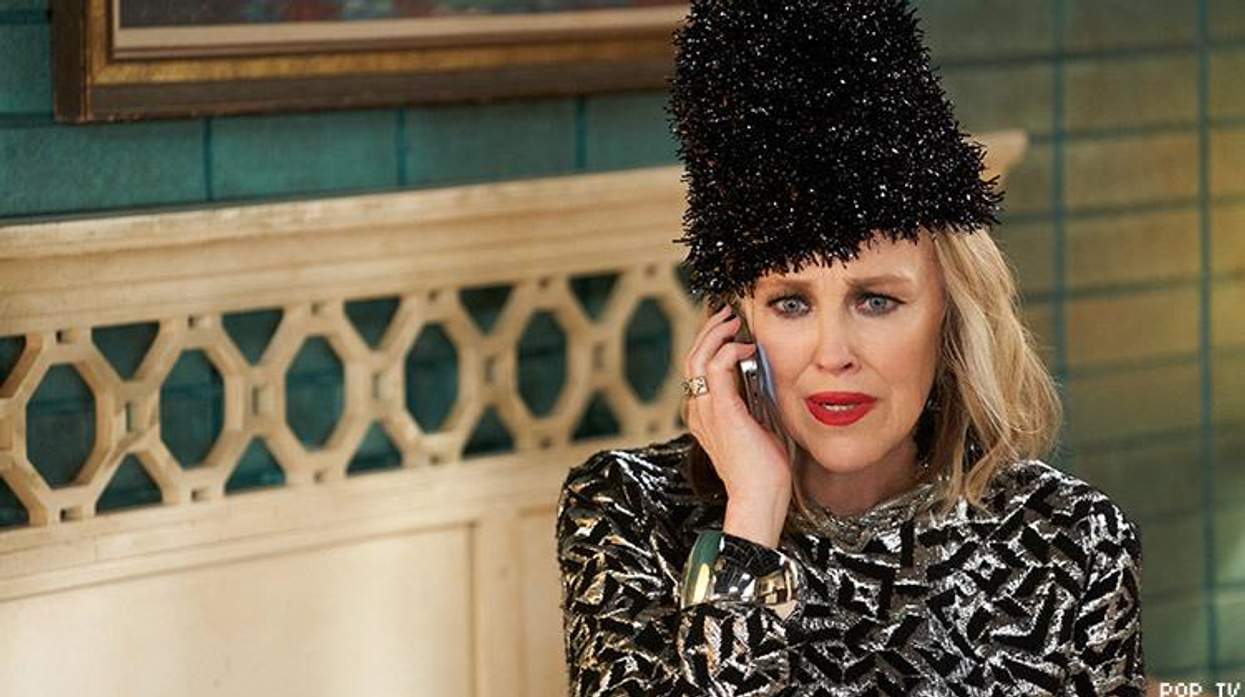

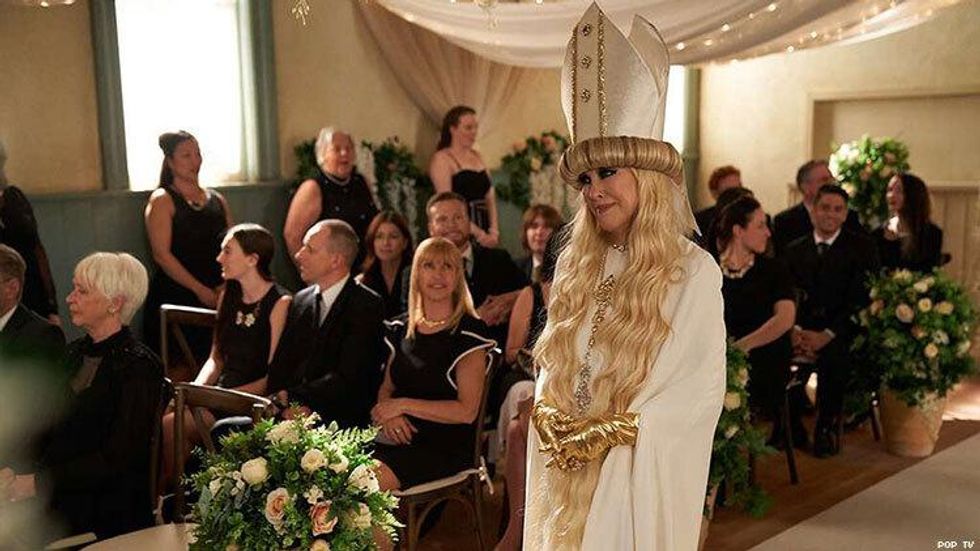
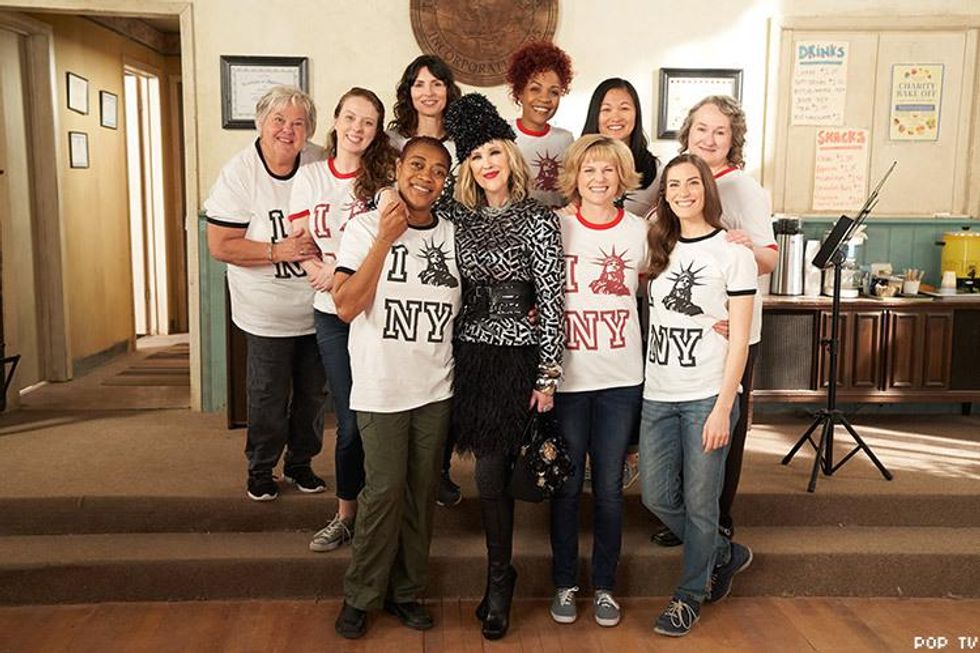
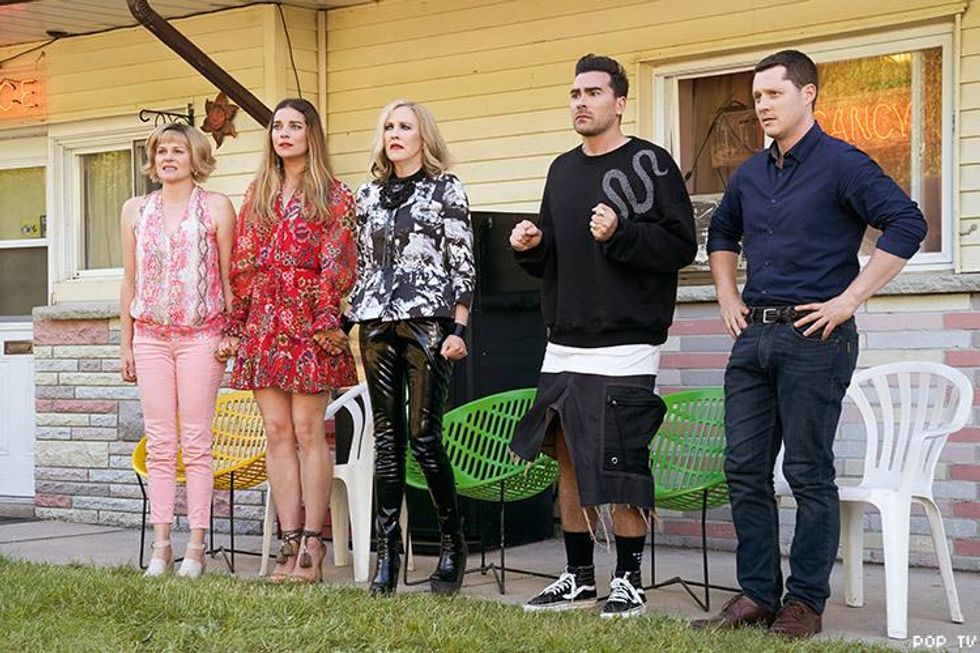








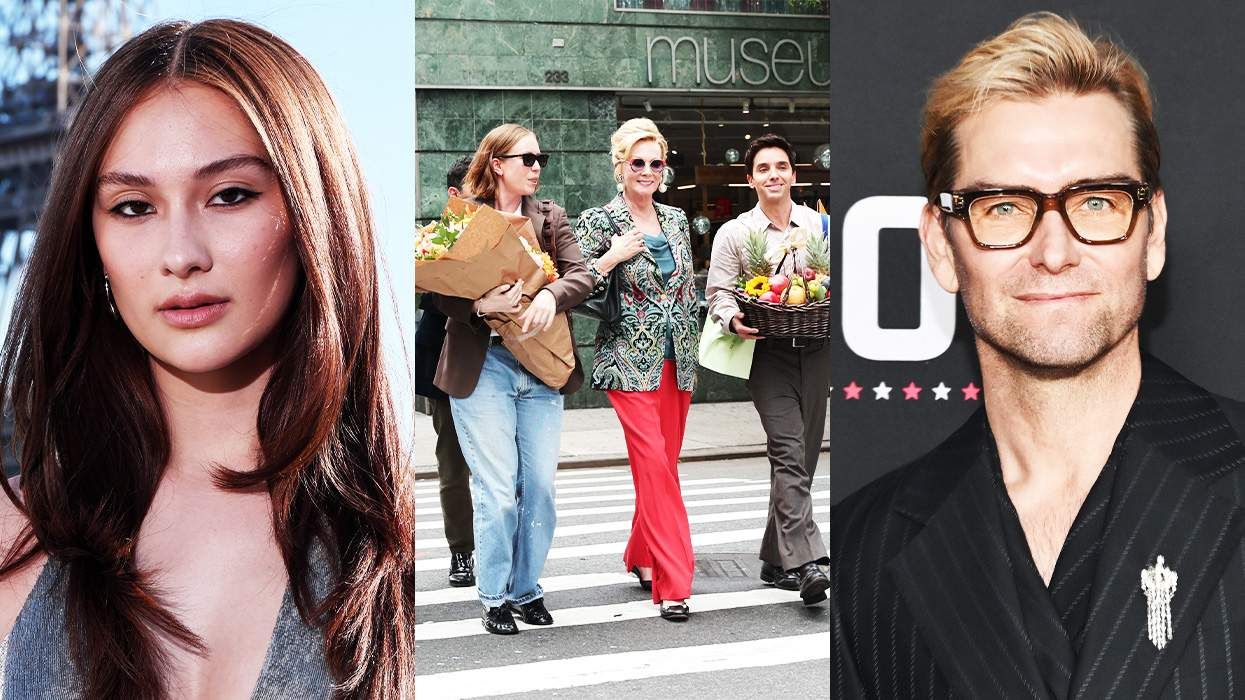





Charlie Kirk DID say stoning gay people was the 'perfect law' — and these other heinous quotes
These are some of his worst comments about LGBTQ+ people made by Charlie Kirk.